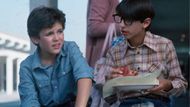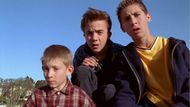I've been watching Young Sheldon for a while now, and every time I enjoy an episode, it feels like I've seen something like this before. And if you think I'm talking about the highly acclaimed sequel, The Big Bang Theory, then you're wrong.
Even though these two shows focus on the same characters, there's a completely different tone and narrative in Young Sheldon and TBBT. The prequel gives a strange, nostalgic hit, and then I realized it's a cross between The Wonder Years and Malcolm in the Middle.
That was the missing piece. The fact that Sheldon's narrative takes the form of an older voice talking about his past self immediately reminded me of Kevin Arnold's voiceover in The Wonder Years. And the way his family swings between chaotic and loving? That's straight-out Malcolm in the Middle.
The more I considered it, the more it made sense. Young Sheldon might be based on a science-genius kid, but it takes the heart and humor of two completely different shows that arrived way before it. And here's precisely how I believe the inspiration works.
The Wonder Years: Where Young Sheldon finds its heart and soul

If you’ve ever seen The Wonder Years, then you’ll instantly recognize a familiar rhythm in Young Sheldon. Both shows follow a young boy growing up in a world that often misunderstands him, and both use one powerful device to pull viewers in: adult narration.
Interestingly, the legendary creator Chuck Lorre also mentioned keeping the show in mind while writing The Big Bang Theory's prequel. He shared:
"We absolutely discussed Wonder Years when we were writing."
In The Wonder Years, it was Kevin’s older self looking back on childhood with both clarity and emotion. On Young Sheldon, we see Jim Parsons narrating in the voice of adult Sheldon, frequently providing insight (and wit) into what his younger version is going through.
Talking about narration, Lorre said:
"I never worked with narration before. Narration changes the way you write. We looked for inspiration in shows that used it brilliantly. Nobody did it better than Wonder Years."
This isn't a style that simply informs us of what occurred; it reminds us of how it felt. That emotional depth makes Young Sheldon feel more like a memory than a sitcom joke. The single-camera setup (rather than the live studio or laugh track that The Big Bang Theory employs) assists as well.
It offers quieter scenes and room to breathe and makes the narrative feel more intimate. And then there's the environment: a small town, a close-knit family, and a boy struggling to find himself in a world that doesn't always understand him. That's The Wonder Years to a tee—and obviously, the TBBT prequel took that emotional template.
Malcolm in the Middle: The chaos, the comedy, and the genius kid problem

At the other extreme is Malcolm in the Middle, a show featuring a brilliant lad in an extremely loud, ordinary, and frequently dysfunctional household. Ring any bells? Young Sheldon won't necessarily dive into pure slapstick as Malcolm did, but the fundamental premise is amazingly alike.
You have Sheldon, a child prodigy, trapped in a household where everyone else is not on his level. His father is down-to-earth and straightforward, his brother cares more about sports than science, and his sister's quick wit is always clashing with his arrogance.
And his mom? Protective but always in over her head. The tension between genius and mayhem is straight Malcolm in the Middle energy. What also unites the two shows is how they present childhood genius as a blessing and a curse.
Malcolm wrestled with loneliness and social awkwardness, just like Sheldon. Their brilliance frequently made them feel like outsiders, even among their own families. Also, the TBBT prequel does not employ a laugh track, similar to Malcolm in the Middle.
That makes it have a similar tone—quick, character-driven, and a bit volatile. The humor arises not from one-liners but from real circumstances and responses.
Also Read: Why did the youth pastor leave Young Sheldon? Reasons, explored
Continue exploring Soap Central for regular updates on TV series, films, and more!
